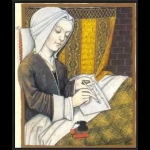We reconstruct lives in the intensive
care unit, pieced together in a buffet
dinner: two widows with cancerous breasts
in their balled hands; a 30-year-old man
in a three-month coma
from a Buick and a brick wall;
a woman who bleeds off and on from her gullet;
a prominent socialite, our own nurse,
shrieking for twins, “her bump gone”;
the gallery of veterans, succored,
awake, without valves, some lungs gone.
Splicing the meats with fluids
seasoned on the dressing room
table, she sings “the bump gone”
refrain in this 69-degree oven,
unstuffing her twin yolks
carved from the breast, the dark meat
wrapped in tinfoil and clean newspaper;
the half black registered nurse
hums her six years in an orphanage,
her adopted white family,
breaded and primed in a posse,
rising in clan for their dinner.
We reload our brains as the cameras,
the film overexposed
in the x-ray light,
locked with our double door
light meters: race and sex
spooled and rungs in a hobby;
we take our bundle and go home.















Comment form: